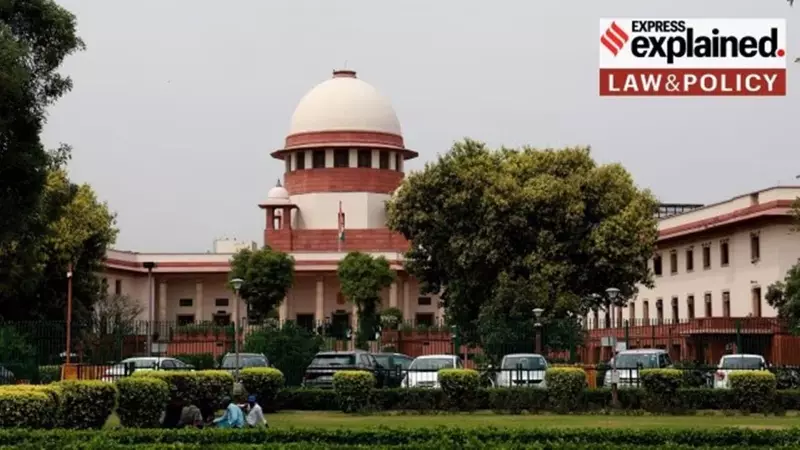
In a landmark verdict that brings clarity to the constitutional relationship between Governors and state governments, a five-judge Constitution Bench of the Supreme Court has delivered its opinion on the Presidential Reference concerning gubernatorial assent to legislative Bills. The significant ruling came just days before Chief Justice of India BR Gavai's retirement, addressing fourteen specific legal questions posed by President Droupadi Murmu.
Constitutional Options for Governors
The Supreme Court provided crucial clarification on Article 200 of the Constitution, which governs the process when a Bill is presented to a Governor after being passed by the state legislature. The court firmly established that Governors have exactly three constitutional options: grant assent to the Bill, reserve the Bill for the President's consideration, or withhold assent and return the Bill to the legislature with comments for reconsideration.
Most importantly, the Bench eliminated any ambiguity about a Governor simply refusing to act on legislation. The court ruled there is no constitutional provision for "withhold assent simpliciter" - meaning Governors cannot simply refuse to sign a Bill and keep it pending indefinitely without taking any of the three specified actions.
Discretion and Judicial Review
Addressing the critical question of whether Governors are bound by ministerial advice while exercising powers under Article 200, the Supreme Court delivered a nuanced verdict. The court determined that Governors enjoy discretion in granting assent to Bills and are not bound by the Council of Ministers' advice in this specific function.
The Bench provided compelling reasoning for this position, noting that if Governors were completely bound by cabinet advice, they could never return a Bill for reconsideration since no government would advise against its own legislation. However, the court balanced this discretion with accountability, ruling that while the substantive merits of a Governor's decision are not justiciable, "prolonged, unexplained, and indefinite inaction" is subject to judicial review.
The court also addressed the immunity question under Article 361, clarifying that while this provision grants personal immunity to Governors, it does not protect the "office" of the Governor from judicial scrutiny regarding constitutional inaction. This means immunity cannot be used to shield indefinite delays in decision-making.
Timelines and Deemed Assent Rejected
In a significant reversal of its earlier position, the Supreme Court overruled its April judgment that had imposed specific timelines of one to three months for Governors to act on Bills. The Constitution Bench held that since Article 200 uses the phrase "as soon as possible" rather than fixed timeframes, it would be inappropriate for the judiciary to prescribe rigid deadlines for constitutional authorities.
The court also firmly rejected the concept of "deemed assent" introduced by a two-judge bench in the April 2025 verdict. The Bench clarified that Article 142 cannot be used to create a legal fiction that substitutes the Governor's constitutional role. This means courts cannot assume a Bill is passed merely because of gubernatorial delays, and a Bill cannot become law without the specific assent of the Governor or President.
The verdict extends similar principles to the President's powers under Article 201, ruling that the President's decision to assent or withhold assent to state Bills reserved for consideration is not open to judicial review on merits, nor can the President be bound by judicially prescribed timelines.
Broader Constitutional Implications
The Supreme Court addressed several other important questions in its comprehensive opinion. The Bench clarified that the President is not required to seek the Supreme Court's advice under Article 143 every time a Governor reserves a Bill, stating that the President's subjective satisfaction is sufficient.
Regarding judicial review of legislation, the court ruled that courts can only review "laws" - meaning enacted legislation - not "Bills" which are proposed legislation. This means courts cannot adjudicate the validity of a Bill before it receives assent and becomes law.
The court declined to answer questions about the mandatory reference to five-judge benches under Article 145(3) and disputes between the Union and States under Article 131, deeming these irrelevant to the specific issues regarding gubernatorial powers over legislative assent.
This landmark verdict brings much-needed clarity to the constitutional framework governing the relationship between state governments and Governors, while respecting the delicate balance of power between different branches of government. The ruling establishes clear boundaries for gubernatorial discretion while ensuring accountability through judicial review of inaction.





